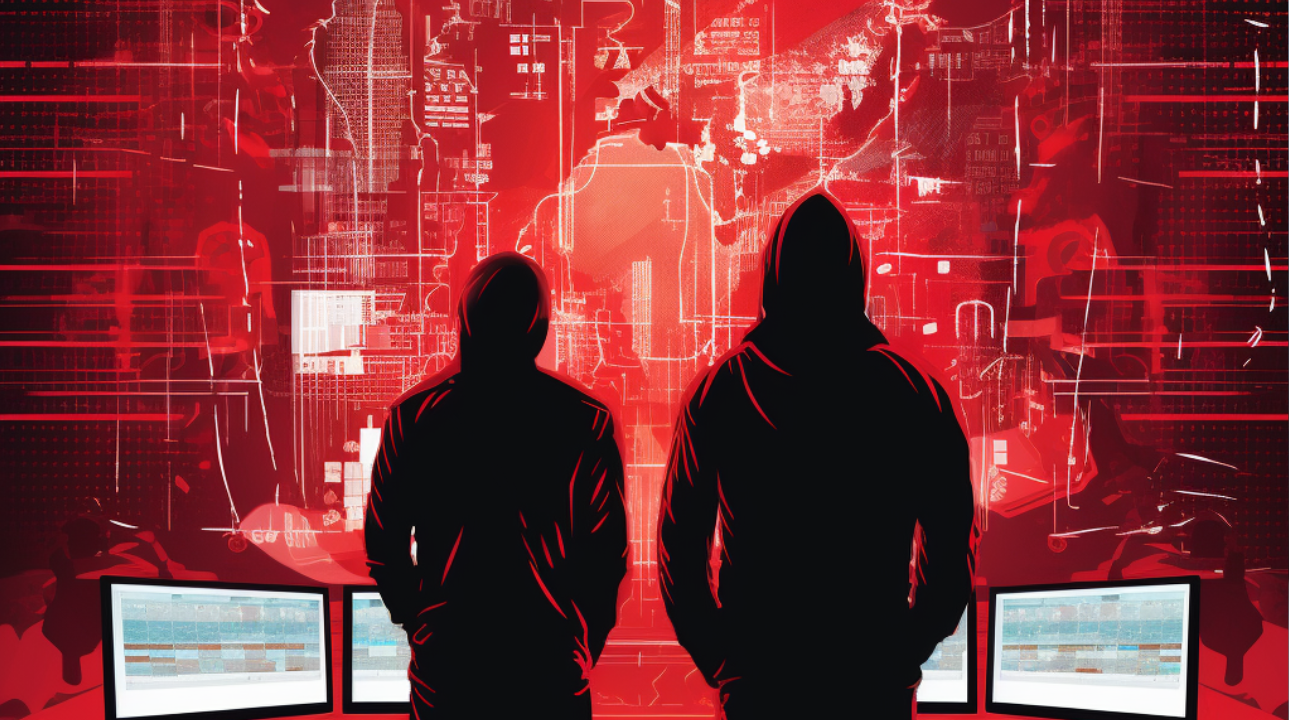Ada Lovelace Day - The Story Behind a Pioneering Computer Visionary
Today, we delve into the life of the individual credited with crafting the world's first algorithm and widely acknowledged as among the first computer programmers.
Our Managed Detection and Response Services provide continuous monitoring from a team who’ll neutralise any breaches at speed...
Gain access to malware experts to quickly contain threats and reduce future exposure to attacks...
Integrity360 has been recognised as a Gartner Representative Vendor.
Many organisations are choosing CyberFire MDR to strengthen their defences. Discover how it can protect your business in our brochure.
Cyber attacks often seem faceless, but hidden behind the headlines of financial loss and technical details there are very real human stories.
In 2025, we’re witnessing a shift in how ransomware operates, who it targets, and the consequences of falling victim.
Stay ahead of the latest cybersecurity industry developments, advancements and threats, and understand how you can best protect your organisation.
Do you know what your company’s network vulnerabilities are? Businesses that invest in penetration testing do.
If your business handles credit card data, PCI DSS compliance isn’t optional—it’s critical. From retailers and e-commerce platforms to service providers and financial institutions, securing credit card data is critical to customer trust and preventing fraud.
Stay informed with the latest cybersecurity news with our weekly threat roundups.
Confused about cybersecurity? Our A-Z Glossary of terms can help you navigate this complicated industry.
For many small and mid-sized businesses, cybersecurity can feel overwhelming.
SOC 2 certification reflects Integrity360’s continued investment in strengthening cyber resilience for clients across highly regulated and high-risk industries.
Leading Canadian cybersecurity services provider Advantus360 joins Integrity360 creating the group’s first hub in North America
Posts about:

Today, we delve into the life of the individual credited with crafting the world's first algorithm and widely acknowledged as among the first computer programmers.

This Cyber Security Awareness Month one of the main focuses is on making and using strong passwords. They’re one of the simplest yet most critical aspects of cyber security that are often neglected. Many consider passwords as just an obstacle, an annoying necessity that stands between you and your Facebook page, email, or banking app. However, when it comes to safeguarding your digital identity and personal information, passwords serve as your first line of defence.

It’s October which means it’s Cyber Security Awareness Month, a global initiative designed to educate the public about the importance of cyber security and provide tips to stay safe online.

In today's digital landscape, data has become the new currency. Organisations amass, store and utilise vast amounts of sensitive data, from sensitive customer details to intellectual property. While this data is invaluable for business functions, it's also a prime target for cybercriminals. A data breach can be calamitous, potentially leading to financial setbacks, reputational damage, and legal complications. In this blog we look at how an organisation should respond to a data breach.

In order to defend your organisation, you need to think like both a protector and an attacker. By seeing things from a hacker's viewpoint, you can better protect your organisation from threats. This blog dives into this mindset, offering simple steps to make your organisation safer.

With many companies struggling with the intricacies of cyber security, introducing an expansive supply chain into the equation can greatly exacerbate the already tough challenges. In this blog we take a look at what supply chain attacks are and some ways to reduce the risks they pose.

In the world of cyber security, the battle between defenders and attackers is continuous, much like a never ending game of chess. As defence mechanisms evolve, attackers adapt, making their strategies ever more sophisticated. With the proliferation of cutting-edge technologies, the sophistication of attack methodologies has also surged. Amidst this, the significance of red teaming and pentesting has become paramount.

Almost every organisation, whether big or small is online in some way, necessitating the need for cyber security. However, cyber security isn't just about protecting your data; it's about adhering to regulations, avoiding crippling fines, and protecting your reputation in the marketplace.

When we speak of cyber security and the world of technology, we're discussing an industry that, at its core, thrives on innovation. But while the spotlight often shines on the latest advancements, it's essential to remember the foundations that paved the way.

Legacy software and hardware, though once the pillars of digital innovation, have become cyber security vulnerabilities today. These old systems, though still in use, become potential "digital time bombs," presenting growing cyber security risks that businesses and individuals must address. By recognising these risks and proactively addressing them, we can ensure that our digital past doesn't compromise our future.

ISO 27001 continues to be the most popular security framework organisations align themselves to but achieving compliance can be a challenge for many organisations. Luckily there is a service that can greatly help meet the standards; Managed Detection and Response (MDR).

Enterprise Times talked with Richard Ford, Chief Technology Officer at Integrity360, about Managed Detection and Response. In the past, tools have been sold based on fear and the need to have multiple overlapping tools to plug gaps. But that has come at a price of complexity which, in itself, leads to gaps and mistakes. Listen to Richard's insights in the podcast below.